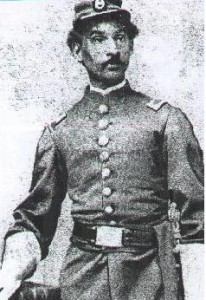
A sigh is breathed from million hearts,
From Slavery’s chain set free:
A million tongues now sadly cry,
Great Queen, we weep for thee!
Our Queen is dead; for her all mourn,
In hamlet, palace, hall.
“My Queen is dead!” a warrior cries,
In a lonely Zulu Kraal.
Though high of race, in power and place,
Thy woman’s love, O Queen,
O’er every land from Britain’s Isle
To Afric’s sand was seen.
The lowliest found in they domain
Justice to Truth allied;
Tyrants who boast that “might is right,”
Soon pass beyond thy tide.
Thy virtue set a nobler goal,
Which all might seek to find;
Man calls his fellowman his friend
Nor asks his hue or kind.
Ye heard, sad victims of man’s greed,
Her Sovereign voice, which said:
“On Britain’s sacred soil the slave
In chains shall never tread.”
“Soon as the bondman’s weary feet
Shall press its holy crust,
That moment he a free man stands:
His shackles fall to dust.”
On snow-clad hills the North Star smiles,
Our guide in days of grief;
But sorrow fled, and joy was found
‘Neath the Crown and Maple leaf.
And now in solemn silence bow
Bengali, — Bedouin; —
In palm-clad isles; ‘neath Orient skies
Proud Turk and Fellaheen.
While Afric’s sons, wherever found,
In free and blest manhood,
Revere the name of England’s Queen:
Victoria the Good.
From The Colored American Magazine. vol. 2, no. 5. 1901. pp. 336.
Note: This the inaugural post in a series about C19 Black Archival Poetics in which I will publish poems recovered from 19th century black periodicals. This project evolved from a desire to save and make use of archival material that I have uncovered en-route to completing my dissertation project. The significance of this small project is multifold. By decentering the canon, it clarifies the diasporic tendencies of black periodicals and print culture in the late 19th century. It exposes the literary and editorial work of numerous African American writers and thinkers who we have come to see as one-dimensional. Perhaps most importantly, it sheds light on the intellectual work of African American women. What we know about African American women’s literary, cultural and social productions from this time period is still quite limited. This is certainly due to the limitations of mainstream publishing, which black periodicals regularly subverted (and continue to subvert today). A consideration of these poems can ameliorate that fact. Finally, and perhaps most importantly, these poems are often just a pleasure to read.
Comments by Kristin Moriah